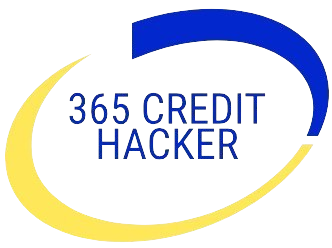Credit
EDUCATION
Credit Education empowers individuals to make informed financial decisions, build a strong credit history, and access better financial opportunities.
We believe everyone deserves a fair shot at financial success, and a good credit score is the key to unlocking opportunities.
That’s why we created 365 Credit Hacker, a platform
designed to empower you to take control of your financial future. Our mission is to
provide you with the knowledge and tools to understand your credit, dispute
inaccuracies, and build a stronger financial foundation.
We understand that navigating the complex world of credit can be overwhelming. That’s
why we’ve created a user-friendly platform filled with easy-to-follow guides, tips, and
resources. Our step-by-step approach breaks down the credit repair process into
manageable steps, making it accessible to everyone. We’re committed to transparency
and honesty, and we believe that with the right information and support, you can achieve
your credit goals.
General Credit Knowledge
General Credit Knowledge
A credit score is a numerical representation of your creditworthiness.
It’s calculated using information from your credit report, including payment
history, credit utilization, length of credit history, credit mix, and new credit.
Equifax, Experian, and TransUnion.
You can obtain one free credit report from each of the three major credit bureaus
annually through AnnualCreditReport.com.
A hard inquiry typically occurs when a lender checks your credit for a loan
application and can temporarily lower your score. A soft inquiry is for
informational purposes (like checking your own credit) and doesn’t affect your
score.
Your credit utilization ratio is the amount of credit you’re using compared to your
total available credit. A low credit utilization ratio is generally better for your credit
score.
Most negative items, like late payments, stay on your report for seven years.
Chapter 7 bankruptcies stay for ten years, and Chapter 13 bankruptcies stay for
seven years.
A credit report is a detailed record of your credit history, while a credit score is a
numerical summary of your creditworthiness based on the information in your
report.
DIY Credit Repair Process
DIY credit repair is the process of improving your credit score by yourself without
hiring a professional credit repair company.
The time it takes to see results from DIY credit repair varies depending on the
number of disputes, the credit bureau’s response time, and the types of errors on
your report.
The steps typically include obtaining your credit reports, identifying errors,
crafting dispute letters, sending letters to credit bureaus, and following up on
disputes.
While not required, basic computer skills and good written communication are
helpful for DIY credit repair.
No, credit repair cannot remove legitimate debts. It focuses on correcting errors
and disputing inaccurate information.
Mistakes can happen, but they’re often correctable. Review your credit reports
carefully and be persistent in your disputes.
Bankruptcy remains on your credit report for a specific period, and DIY credit
repair cannot change that timeframe.
Your Company's Services
Each package has a detailed description
Yes we provide DIY packages
We have links to take you A1 resources for your credit journey
Of course we do for a fee
THERE ARE NO REFUNDS!
Legal and Ethical Considerations
Yes, DIY credit repair is legal.
No, neither DIY credit repair nor professional credit repair companies can
guarantee results.
The FCRA is a federal law that protects consumers’ rights regarding their credit information.
Common scams include upfront fees, guaranteed results, and claims of special
connections to credit bureaus.
Be wary of upfront fees, research companies thoroughly, and read reviews before
hiring a credit repair service.
When using a reputable DIY credit repair service, sharing personal information is
generally safe. However, always exercise caution and read privacy policies.
Yes, you can hire a professional credit repair company at any time.
While there’s no quick fix, paying bills on time, keeping low credit utilization, and
disputing errors can help improve your credit score over time. C
While higher credit scores are generally better, the ideal credit score depends on
individual financial goals. A good credit score is typically considered to be above
700.
Credit
Education
Understanding your credit score is key to achieving financial freedom and security. By investing in credit education, you gain the knowledge to navigate the complex financial landscape and reach your goals.
Take control of your financial future with our DIY Credit Repair program. Unlock opportunities by challenging inaccurate information and building a strong credit foundation. Our expert guidance empowers you to achieve credit success.
Take control of your financial future with our DIY Credit Repair program. Unlock opportunities by challenging inaccurate information and building a strong credit foundation. Our expert guidance empowers you to achieve credit success.
